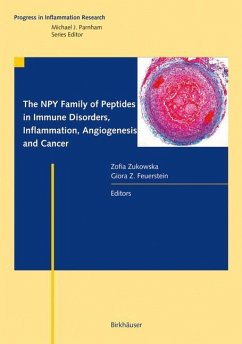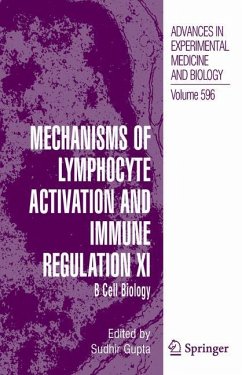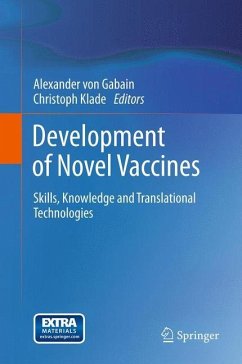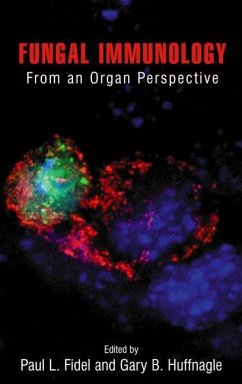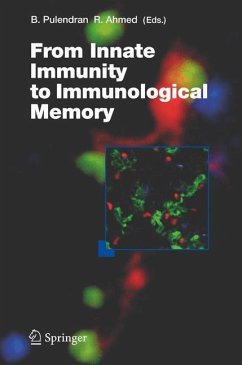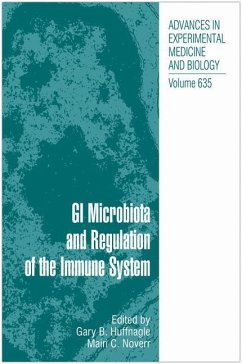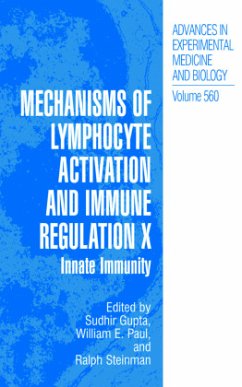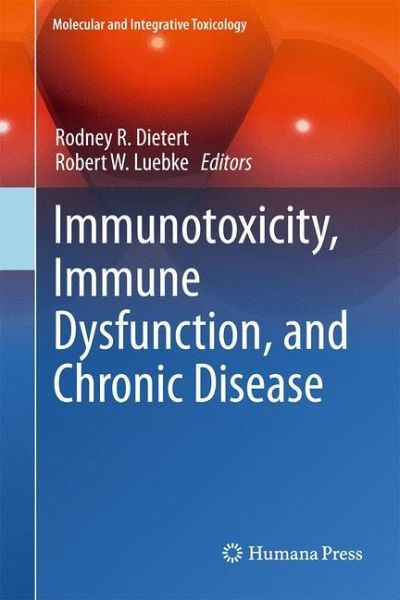
Immunotoxicity, Immune Dysfunction, and Chronic Disease

PAYBACK Punkte
57 °P sammeln!
Chronic diseases are the leading cause of deaths worldwide and according to the World Economics Council and the Harvard School of Public Health, the cost of chronic diseases is expected to reach a staggering 48% of global gross domestic product by the year 2030. The urgency of the issue was demonstrated in 2011 when for only the second time in its existence, the U.N. General Assembly brought a health issue to the floor for consideration: chronic diseases.To date, most considerations of the issue have approached the topic from the vantage point that chronic diseases are a myriad of largely unco...
Chronic diseases are the leading cause of deaths worldwide and according to the World Economics Council and the Harvard School of Public Health, the cost of chronic diseases is expected to reach a staggering 48% of global gross domestic product by the year 2030. The urgency of the issue was demonstrated in 2011 when for only the second time in its existence, the U.N. General Assembly brought a health issue to the floor for consideration: chronic diseases.
To date, most considerations of the issue have approached the topic from the vantage point that chronic diseases are a myriad of largely unconnected diseases and conditions arising in diverse tissues, organs and physiological systems. This book, Immunotoxicity, Immune Dysfuction, and Chronic Disease, deviates from that prior model. It considers the interconnectivity of chronic diseases with both environmental insult of the immune system and subsequent immune dysfunction and inflammatory dysregulation as theunderlying basis for many, if not most, chronic diseases.
This change in the perception of environment-immune linkages to chronic disease is significant and has immediate implications both for the prevention of disease as well as for the development of more effective therapeutic approaches. Rather than considering environmental factors and types of reported immune alterations (e.g., depressed humoral immunity) as is common in books involving immunotoxicity, the present book approaches the environment-immune-disease triad from the standpoint of the disease. Each chapter emphasizes one or more specific immune dysfunction-based chronic disease(s) or condition(s) (e.g., asthma, atherosclerosis, multiple sclerosis, lupus) and describes: 1) the suggested environmental risk factors, 2) the underlying immune dysfunction(s) associated with the disease and 3) the overall health consequences of the disease.
This book isan early entry for a new Toxicology book series for Springer titled: Molecular and Integrative Toxicology (MaIT). The series will feature detailed research information, but in the context of a more integrative or holistic framework. As part of this framework, the chapters will contain a section on "Key Points" as well as "Recommendations" where appropriate. The goal is to cover the most timely, state-of-the-art issues in toxicology as well as to ensure that the information is maximally accessible for research scientists, teachers, physicians and students.
We are particularly grateful to the numerous chapter authors for providing comprehensive and expert disease-oriented contributions. We are also appreciative of their willingness to consider their material not as disparate pieces of what has become a major health crisis, but rather as key pieces in a network of apparently interconnected health challenges.
To date, most considerations of the issue have approached the topic from the vantage point that chronic diseases are a myriad of largely unconnected diseases and conditions arising in diverse tissues, organs and physiological systems. This book, Immunotoxicity, Immune Dysfuction, and Chronic Disease, deviates from that prior model. It considers the interconnectivity of chronic diseases with both environmental insult of the immune system and subsequent immune dysfunction and inflammatory dysregulation as theunderlying basis for many, if not most, chronic diseases.
This change in the perception of environment-immune linkages to chronic disease is significant and has immediate implications both for the prevention of disease as well as for the development of more effective therapeutic approaches. Rather than considering environmental factors and types of reported immune alterations (e.g., depressed humoral immunity) as is common in books involving immunotoxicity, the present book approaches the environment-immune-disease triad from the standpoint of the disease. Each chapter emphasizes one or more specific immune dysfunction-based chronic disease(s) or condition(s) (e.g., asthma, atherosclerosis, multiple sclerosis, lupus) and describes: 1) the suggested environmental risk factors, 2) the underlying immune dysfunction(s) associated with the disease and 3) the overall health consequences of the disease.
This book isan early entry for a new Toxicology book series for Springer titled: Molecular and Integrative Toxicology (MaIT). The series will feature detailed research information, but in the context of a more integrative or holistic framework. As part of this framework, the chapters will contain a section on "Key Points" as well as "Recommendations" where appropriate. The goal is to cover the most timely, state-of-the-art issues in toxicology as well as to ensure that the information is maximally accessible for research scientists, teachers, physicians and students.
We are particularly grateful to the numerous chapter authors for providing comprehensive and expert disease-oriented contributions. We are also appreciative of their willingness to consider their material not as disparate pieces of what has become a major health crisis, but rather as key pieces in a network of apparently interconnected health challenges.





